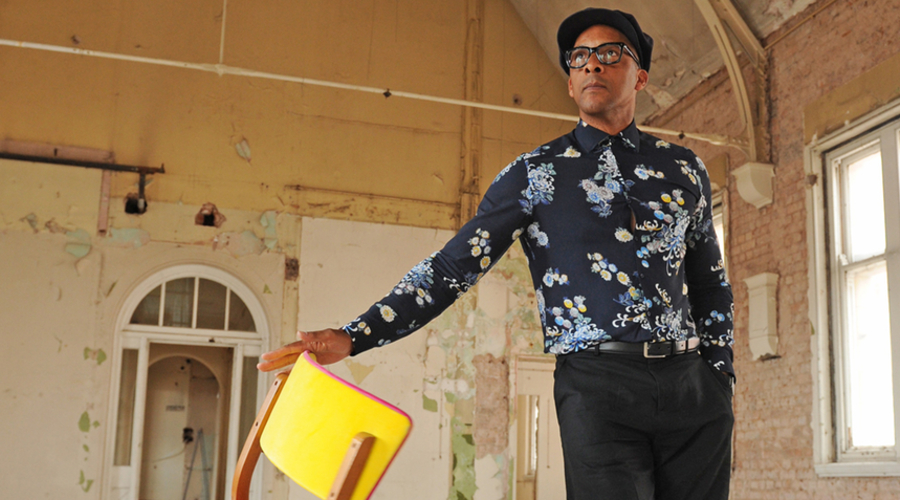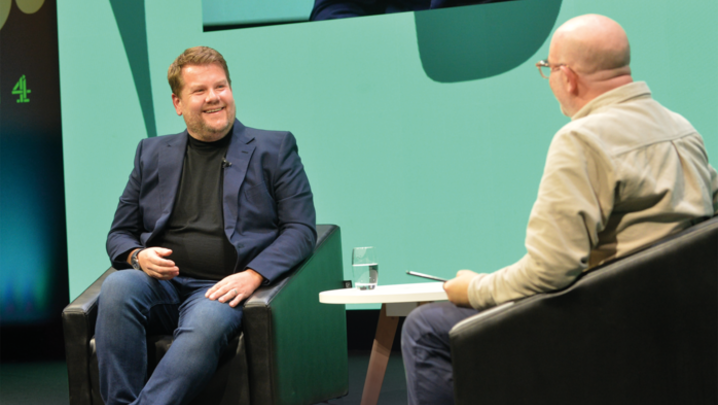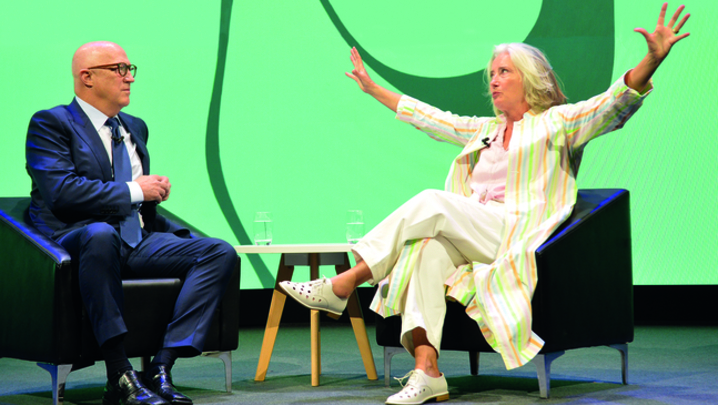Roz Laws talks to Jay Blades, presenter of zeitgeist show The Repair Shop, whose own life story offers inspiration for these troubled times
Jay Blades, TV’s favourite furniture restorer and the king of “make do and mend”, has just surprised himself with his own skills. “I’m blown away!,” he declares from his workshop near Ironbridge in Shropshire. The reason for his delight? He’s thrilled to have made some home-made furniture polish.
At a time when many of us are learning new skills, Blades – best known for presenting the breakout hit and RTS award-winner The Repair Shop – is joining in for his new 10-part BBC One show, Jay Blades’ Home Fix, screened every weekday morning.
We speak as he takes a break from filming Home Fix in his large workshop, with a lone cameraman standing four metres away and zooming in for close-ups.
Blades is showing people basic DIY skills and learning how to make everyday things we’re used to buying in the shops. He describes it as “Blue Peter meets Saturday Kitchen”.
“If you can buy it, someone has made it – it hasn’t just magically appeared – and there’s no reason why you can’t, too,” he explains. “I used to buy furniture polish, but not any more. I had to buy some ingredients. The only vinegar I had was what I put on my chips, so I had to get distilled white vinegar, but it wasn’t hard.
“The show is partly about using old remedies and going back to the Second World War, when it was hard to get hold of things. And showing people how to adapt if they don’t have a drill or tools. You can make some things with cardboard if you don’t have timber.
“Like many people in lockdown, I’ve been getting around to doing DIY jobs. I’ve oiled all the squeaky doors in my house. I’m over the moon with my furniture polish. It smells beautiful, too, like oranges. I’m going to make dishwasher tablets next.”
Blades’ TV shows are tapping into the mood of the nation, with the way they help other people, champion skills and encourage restoration, rather than a throwaway culture.
The Repair Shop offers soothing and uplifting television that seems perfect lockdown viewing, helping us navigate a new normal.
It’s where damaged but cherished family heirlooms are brought back to life. We marvel at the skill and patience of craftsmen and women – furniture restorers, horologists, metalworkers, ceramicists, toy restorers and more – and are moved at the emotional stories behind the objects.
They range from musical instruments and clocks to a First World War soldier’s helmet, penny farthing bike or a toy Dalek.
No wonder around 7 million have been watching The Repair Shop in its new, prime-time slot of 8:00pm on BBC One, making it one of the biggest quarantine hits.
“The Repair Shop is great for now,” agrees Blades. “People tell me that they love the way it makes them feel and how it makes them remember. It takes us down memory lane, but with a modern twist. It goes back to an era when people used to fix things before this consumer society.
“It resonates with viewers during the crisis, when people are doing nice things for people they don’t know. This virus has taught us to get back to being human. That’s what The Repair Shop is about – love, kindness and community. We’re working together to restore people’s memories, and that’s beautiful.
“I knew from early on that it was going to be something really special. Bringing so many different craftspeople together in the same building is an un-usual concept, but a refreshing change.”
It seems to work across all demographics, too. Celebrity fans range from Stephen Fry and Richard Osman to Leigh-Anne Pinnock from Little Mix.
The Repair Shop, which is produced by Ricochet, had a low-key start as an afternoon show on BBC Two in 2017, but was swiftly recommissioned. By series 4, in 2019, it had switched to BBC One. It won the Daytime Programme prize at the RTS Programme Awards 2019 plus a Rose d’Or, and Best Daytime Programme at this year’s Broadcast Awards. A Christmas special attracted 5.5 million viewers, which prompted schedulers to give series 6 a peak-time slot. Filming took place five days a week from last April until January this year, so there are plenty of episodes yet to be rolled out, at both 8pm and in daytime.
Blades was running a charity, Out of the Dark, teaching teenagers furniture restoration as an alternative to petty crime, when he was featured in a Guardian video.
He was approached to appear on the BBC’s Money for Nothing, and then invited to present The Repair Shop, which was devised by Ricochet’s creative director, Katy Thorogood, after she had a chair restored that was owned by her late mother. Blades still appears on Money for Nothing.
“When I was growing up on a council estate in Hackney, I could never believe I’d one day be on three shows on BBC One. It’s unreal,” he muses.
It has been a struggle to get to this point. Blades, now 50, left school at 15 with no qualifications. He worked in a sausage factory and on a building site before teaching himself furniture restoration, until his life fell apart almost four years ago.
His charity and his marriage collapsed at the same time and he ended up homeless. A friend in Wolverhampton came to his aid. He has been in the West Midlands ever since, setting up his shop and coming out of a “very dark place”.
The Repair Shop has had a lot to do with that. He talks with great fondness of his fellow craftspeople, his “location family”, and their time together at the Weald and Downland Living Museum outside Chichester.
All the repairs take place in the 17th-century thatched barn except for shot blasting and sandblasting, which aren’t allowed in the listed building. Repairs can take up to two weeks of full-time work.
Blades also reveals that “it may look warm in the barn but it’s one of the coldest places I’ve ever been, unbelievably freezing. In winter, you’ll notice us getting bigger, because of all the layers of clothes we wear.
“We are cheered up by our show mascot, Rocky the robin. He often flies in when people arrive with their objects and seems interested in what’s going on.”
Blades is known for his sharp sense of style, including his trademark flat cap, which he rarely removes other than to “take his hat off” for a particularly good transformation. “It’s my brand,” he chuckles. “The cap and the glasses, which I do actually need – without them, everything is blurry.”
Blades’ main job is to help the owners tell the touching stories of their treasured objects.
“I don’t get too emotional, the things I’ve had to deal with in my life have made me tough,” he says.
“But sometimes the stories get to me. The widower who brought in the jukebox so he could hear Moonlight Serenade, the song he danced to on his wedding day – that really hit me. And Albert, with his transistor radio that held precious memories of his wife. Then, there was the family whose mother brought a pump organ from Jamaica, and the man handing a bargeware teapot down to his granddaughter after his daughter’s death.
“They were particularly emotional stories, but I managed not to show my feelings. It’s not about me, and the show isn’t at all exploitative – we never want to milk it. I don’t have a script, we want everything to be natural.”
And naturally good, you might say.







